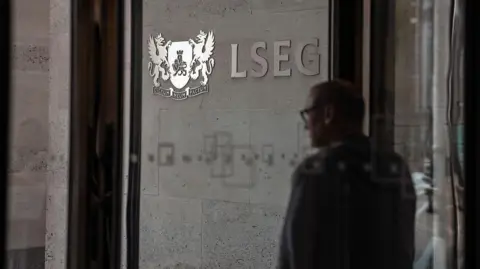In the realm of economic fluctuations, recent events surrounding the UK’s Chancellor of the Exchequer, Rachel Reeves, have prompted significant financial repercussions. A heartfelt moment occurred during the Prime Minister’s Questions when Chancellor Reeves was visibly distressed, leading to considerable movements in the financial markets. Following this emotional display, borrowing costs surged sharply, and the British pound experienced a notable decline, showcasing the sensitive nature of political stability on fiscal health.
During the parliamentary session on Wednesday, Chancellor Reeves faced intense scrutiny due to the government’s abrupt reversal on proposed cuts to welfare benefits, which had provoked substantial backlash. However, the intriguing twist of the day’s events came not from policy analysis but from Reeves’ emotional state, which became a focal point of speculation regarding her future in government. Following her appearance, the pound fell by approximately 1% against the US dollar, despite having been on a strong trading trajectory leading up to that point.
The markets reacted keenly to Reeves’ emotional display as doubts about her position began to circulate. These financial shifts were indicative of investor sentiment shifting swiftly based on political uncertainties, highlighting the delicate balance between economic policy and personal leadership perception. Observers noted that the decline in the pound and the rise in borrowing costs occurred simultaneously, emphasizing that political sentiment could easily translate into market behavior.
The surge in borrowing costs marked one of the largest single-day increases since October 2022, reminiscent of the turmoil faced after former Prime Minister Liz Truss’s mini-budget that played a substantial role in her political downfall. Initially, there was a small reprieve as Keir Starmer’s press secretary issued statements to calm concerns about possible changes in the chancellorship. “The chancellor is going nowhere; she has the prime minister’s full backing,” he asserted. Nevertheless, this reassurance did little to immediately mollify the market’s anxieties, particularly as Keir Starmer himself refrained from providing a strong public endorsement.
This environment of uncertainty continued to foster volatile responses from the markets. After a brief period of easing borrowing costs, yields surged again, indicating that while there might have been transient confidence in Reeves, the underlying issues remained problematic. The withdrawal of plans for welfare reform created a substantial fiscal gap of nearly £5 billion within Reeves’ financial strategies. It underscored deeper concerns about the financial sustainability of the government’s policies and introduced complexities regarding the fiscal budget and overall economic management.
The nature of the situation took a personal turn when a Treasury spokesperson described Reeves’ upset as stemming from a “personal matter,” further complicating the political narrative. Analyst Kathleen Brooks from XTB remarked that the fluctuations observed in the pound and gilt yields suggest “fiscal stress,” a condition the UK has navigated through at various points in its history. This was reflected in the performance of the FTSE 250—an index that is more sensitive to domestic policy changes—recording a drop of 1.34 percent.
The intertwining of personal emotion, political strategy, and fiscal health paints a complex picture of the current UK economic landscape. The immediate repercussions of Chancellor Reeves’ tearful appearance raise fundamental questions about the impact of political instability on financial markets. The interconnected dynamics of leadership credibility, government policy, and market reactions highlight the challenges faced by those in power and the critical need for maintaining stability and trust in economic leadership. The fate of both the Chancellor and the government will likely depend on navigating these turbulent waters while addressing the fiscal concerns that are becoming increasingly unavoidable.











